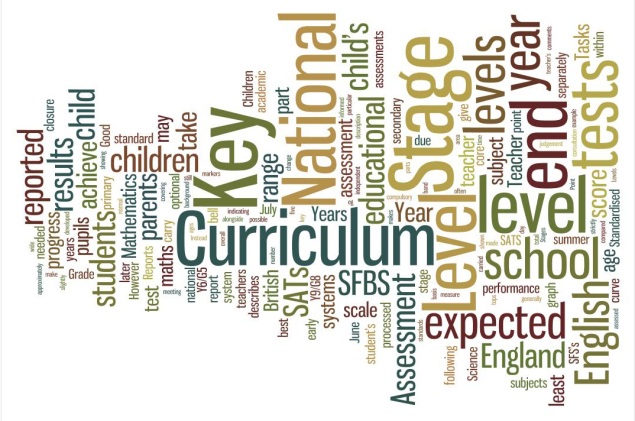I was fortunate to be academically inclined during my school years. This meant that I did well at school. But, more relevant to this discussion, I enjoyed learning. (Well, nearly all the time. When I was about 8 years old, I was, for a brief time, bullied at school and didn’t want to go. But – and I still really don’t know how or by whom – the problem was quickly sorted out.)

My own experiences at school and university have left me with a life-long passion for learning. I feel that I continue to put that passion to good use: books, TV and radio, theatre, adult education courses and, of course, the internet all play a part in my continuing quest to know more stuff. My wife would say much of this learning is of no practical use, but I really don’t care about that. Learning and the creativity conjured up by the human imagination are, to me, moral and social goods in their own right.
Pleasure or Drudgery?
At risk of sounding just a bit evangelical, a word I never expected use about myself, I do wish that everyone could honestly say that they love learning. The discovery of something new should be a moment of joy, at least most of the time.

To that end, I was most struck by a recent article by Eliane Glaser in Prospect magazine: Homeschooling has revealed the absurdity of England’s national curriculum. I do recommend you take the time to read it, as it expresses views which I strongly share, albeit from the point of view of a frustrated parent of school-age children during lockdown. I had experienced similar shock and surprise when my grandchildren, then aged eight and ten years, started spouting complex jargon of English grammar, the likes of which were way beyond my learning when I was their age.
My (unexpressed) thoughts at the time were: “Why are they learning this?” Most of the answers can be found in the Glaser article, but essentially, it boils down to the reforms introduced when Michael Gove was Education Secretary. Don’t forget, his “career psychopath” henchman of choice was one Dominic Cummings, of subsequent Barnard Castle / Rose Garden fame. Glaser opines that the time kids spend on this stuff is “clearly age-inappropriate, joyless and fundamentally pointless”.
Note my emphasis on “joy” (or the lack of it).
Stories, Testing and Gaming the System
Glaser goes on to quote a variety of experts on such subjects as the value of story-telling and listening, the over-use of testing and the consequent gaming of the assessment “system”. The over-emphasis on mechanical, rote-learning of the 3Rs leaves precious little time for creating a love for the arts, music and even the wider aspects of science and the natural world. The National Curriculum and Ofsted create an environment which focuses too much on evidence in writing, ready and waiting for the next “pounce” by Ofsted inspectors.
“Testing drives teaching”, says Debra Myhill in the article: one of the academic advisers on the curriculum. The whole regime kills joy, creativity and imagination. Surely these are the qualities which define the very essence of being human? In an internet-rich world of instant information at our fingertips, the last thing future citizens need is an over emphasis on memorising and parroting facts!
32 Years
In 1988, when my elder son moved to Middle School (as it was then), I started what turned out to be a 32-year “spell” as a School Governor. In the early days, governors were purely decorative. We sat dumbly at meetings whilst the Head Teacher and Chair of Governors engaged in a ritual of mutual admiration.
Times changed and the role of Governor became more demanding. Perhaps the high point was during the years of New Labour. I recall meetings in Whitehall and a group called the “Innovations Unit”. Ideas and best practice were exchanged on the basis of mutual respect. New Labour’s biggest sin was, perhaps, an excess of change. And some New Labour ideas encouraged the thinking that some schools at least might be better off outside the control of democratically accountable local government.
Things turned very sour in 2010. Funding for capital projects was cut to almost zero as part of George Osborne’s 2010 “slash and burn” budget dedicated to the god of austerity. But from then on, it was rule by diktat from the centre. Teachers and governors alike were the enemy – unless they held ideas in tune with the new orthodoxy. Joy went out the window: there was little “love of learning” to be seen. It was all standards, criticism of “the blob” and a climate of fear.
You’re Fired
Matters came to a head and I stood down as a Governor last summer. There were a number of factors which led to my decision, not least that my advancing years were making it more difficult to remember the buzzwords and phrases I was expected to parrot to Ofsted and the like. I did not want to let down the school, whom I continue to hold in great respect and affection. And, to be honest, I really wasn’t enjoying it any more.
But two factors loomed large. The whole dirigiste regime initiated by Gove and broadly maintained by his successors played a big part in my disaffection. But the final straw can be summed up in two words: Gavin Williamson. In my Mr Men 2019 satirical post, I referred to him as Mr Stupid-Boy-Pike, as a mark of the respect I have for him. He was in his kindergarten phase at the time, as Minister of Defence. Lots of toys for boys there!

When the news that Johnson has appointed him as Education Secretary, I instinctively let in a sharp intake of breath, as I recoiled from the news. His litany of serious errors since has received wide publicity, so I will not try to list them all. Here’s a piece from last November, entitled Is Gavin Williamson the Worst Education Secretary Ever? To the list at that time (A level algorithm fiasco and A-level / GCSE U-turn last summer, poor or no guidance to schools on online learning, etc.) we can add the more recent examples of: threatening local authorities with legal action to override their (wise) decision to shut schools early for Christmas, forcing schools to open for one day in early January before another U-turn which has kept children away from schools for the past 2 months.
But my biggest charge against Stupid-Boy Williamson is this: he doesn’t understand what education is for! See this Indy piece:People think Gavin Williamson is very confused about the point of education. He seems to think only of schools and universities as factories for churning out people with enhanced career prospects. This grotesque, utilitarian approach might be forgivable in a Minister in some other Department, but in Education??
Where’s the nurturing of the love of life-long learning, the richness of culture or the joy in that? So, with a heavy heart, it was time to pack it in.
The Parents’ Revolt?

Glaser ends her article with a call for parents – now well-versed in what their kids do all day at school – to rise up and revolt against the repressive box-ticking mentality their children are being subjected to. Perhaps March 8th: the day children in England return to school would be a good time to start. But remember: do it for the love of learning. Do it with imagination, with joy.
Allons enfants…













